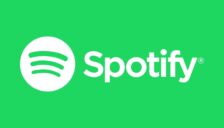Spotify has invested heavily in prerecorded podcast content, and now, the company is looking to host live audio conversations. The platform announced today that it’s acquiring Betty Labs, the company behind the live sports audio app Locker Room. Spotify didn’t disclose how much it spent on the purchase.
As a result of the acquisition, Locker Room will stay live in the App Store but will be rebranded with a different name in the future on iOS and, eventually, Android with a broader focus on music, culture, and sports content. Spotify says it sees live audio as ideal for creators who want to connect with audiences in real time, whether that’s to premiere an album, host a question and answer session, or possibly even perform.

Spotify Launches New Pay “Transparency” Website
Wren Graves, writing at Consequence of Sound:
Spotify has announced a new pay transparency initiative, Loud & Clear, which is certainly one of those two things. This comes just days after the “Justice at Spotify” campaign organized worldwide protests outside of the streamer’s offices demanding one cent per stream, transparent contracts, a user-centric payment model, an end to payola, a switch to crediting all labor in recordings, and an end to lawsuits against artists.
Spotify Says Lossless Streaming Tier Coming
Read More “Spotify Says Lossless Streaming Tier Coming”Beginning later this year, Premium subscribers in select markets will be able to upgrade their sound quality to Spotify HiFi and listen to their favorite songs the way artists intended.
New Spotify Patent Involves Monitoring Users’ Speech to Recommend Music
Spotify has been granted a patent with technology that aims to use recordings of users’ speech and background noise to determine what kind of music to curate and recommend to them, Music Business Worldwide reports. The company filed for the patent in 2018; it was approved on January 12, 2021.
The patent outlines potential uses of technology that involves the extraction of “intonation, stress, rhythm, and the likes of units of speech” from the user’s voice. The tech could also use speech recognition to identify metadata points such as emotional state, gender, age, accent, and even environment—i.e., whether someone is alone, or with other people—based on audio recording.
I’m good, thanks.
Spotify Announces Most Streamed Stats
Spotify has released the top streamed album, track, and other stats for 2020:
The most-streamed song of the year is The Weeknd’s “Blinding Lights,” which held out strong after being the second most-streamed song of the summer with almost 1.6 billion streams this year. In the second and third spots, respectively, are Australian ex-busker Tones And I’s viral 2019 earworm “Dance Monkey” and Roddy Ricch’s “The Box.” The fourth most-streamed song is the catchy “Roses – Imanbek Remix” by Imanbek and SAINt JHN, followed by “Don’t Start Now” by Dua Lipa.
Spotify Letting Artists/Labels Promote Tracks in Recommendations
Sarah Perez, writing at TechCrunch:
Spotify announced today it will begin to test a new service that gives artists more of a say in how their music is discovered on the Spotify platform. At launch, the service will allow artists and labels to identify music that’s a priority to them, and Spotify will then add a signal to help the music get surfaced by its personalization algorithms.
While the new service is not a paid promotion and requires no upfront budget on artists’ or labels’ part, Spotify says that the artists, labels and rights holders will agree to be paid a “promotional recording royalty rate” for streams where the company provides the service.
Why Spotify Has So Many Bizarre, Generic Artists
Peter Slattery, writing at OneZero :
While the platform pays only in the neighborhood of a third of a penny per stream if you’re not Drake, it boasts more than a quarter-billion active users. So, if your music ranks highly for a search term, you can accumulate enough listens to steadily make hundreds, in some cases thousands, of dollars a month with minimal effort.
The key to success is to find a phony artist name that Spotify users are likely to type into search. Like Relaxing Music Therapy, some of these “artists” use names inspired by an adjective commonly used to describe music. Others name themselves after popular uses for certain kinds of music, well-known generic tunes like children’s rhymes, or entire music genres. Often, these creators optimize further by titling tracks and albums with related words and reuploading the same songs ad nauseum, which can look especially absurd when filtering to see just a single tune. Relaxing Music Therapy, for instance, has uploaded the track “Stream in the Forest With Rain” 616 times to date.
Spotify CEO Talks Future of Music Releases
Spotify’s CEO, Daniel Ek, talked with Music Ally about how he sees the music industry going forward:
“There is a narrative fallacy here, combined with the fact that, obviously, some artists that used to do well in the past may not do well in this future landscape, where you can’t record music once every three to four years and think that’s going to be enough,” said Ek
“The artists today that are making it realise that it’s about creating a continuous engagement with their fans. It is about putting the work in, about the storytelling around the album, and about keeping a continuous dialogue with your fans.”
Ek cited Taylor Swift’s activity around her new album ‘Folklore’ as just one recent example of an artist benefitting from that kind of effort.
“I feel, really, that the ones that aren’t doing well in streaming are predominantly people who want to release music the way it used to be released,” he said, as the interview ended.
Couple thoughts:
- As someone that loves the album experience, I hate this. I barely remember to listen to singles when they’re released and then forget they ever came out. Fine, I’m getting old, but shouldn’t the next “model” for releasing music actually be one where artists can release music in various ways, that they think best suits their art, and make a living doing it?
- Taylor Swift, and artists of her size, are usually the exception, not the rule.
- Spotify is worth $50 billion and barely, if at all, making money. That’s not sustainable. There’s a reason they’re spending so much money on premium podcasts and other content that’s not related to music.
Spotify Launches Couples Plan
With Spotify Premium Duo, our new, first-of-its-kind subscription plan, couples can enjoy their favorite music—together and separately.
Premium Duo is designed for audio-loving pairs living at the same address. Each individual gets their own Premium account under one plan in addition to unique benefits for couples for just $12.99 (or market equivalent) per month.
Spotify Removes Library Limit
Spotify has lifted the 10,000 song library limit.
Spotify Acquires The Ringer
Spotify has acquired The Ringer.
Spotify has purchased The Ringer, Bill Simmons’ sports and culture site, the companies announced today (February 5). The move follows the streaming service’s expansion into podcasts. (The Ringer has 30 podcasts.) The Ringer, which was previously in partnership with Vox Media, also has a video network, film production division, and book imprint, as The New York Times notes.
Simmons, the former ESPN commentator who founded The Ringer in 2016, said in a statement: “Spotify has the unique ability to truly supercharge both content and creator talent across genres. We spent the last few years building a world-class sports and pop culture multimedia digital company and believe Spotify can take us to another level. We couldn’t be more excited to unlock Spotify’s power of scale and discovery, introduce The Ringer to a new global audience, and build the world’s flagship sports audio network.”
I know I’m probably not like most casual podcast listeners, but the moment any of this content goes behind any kind of Spotify exclusive wall, I’m out on the shows. Neil Cybart’s take on why Spotify spent the money here feels right to me. The economics of streaming music isn’t great and they’re betting on sports radio/talk and podcasts.
Dashboard Confessional Shares #ThrowbackThursday Playlist
Chris Carrabba of Dashboard Confessional has released a “#ThrowbackThursday” playlist on Spotify.
Read More “Dashboard Confessional Shares #ThrowbackThursday Playlist”
Spotify Acquires SoundBetter
Spotify today took another step in its efforts to build out services for artists to help diversify itself away from a business model predicated on paying music streaming royalties to labels: it has acquired SoundBetter, a music production marketplace for artists, producers, and musicians to connect on specific projects; and for people who are looking to distribute music tracks to those who want to license them.
Pre-Saving Albums Can Allow Labels to Track Users on Spotify
Users who “pre-save” an upcoming release to their Spotify accounts may be sharing more personal data with the act’s label than they realize.
To pre-save music, which adds a release to a user’s library as soon as it comes out, Spotify users click through and approve permissions that give the label far more account access than the streaming giant normally grants them — enough to track what they listen to, change what artists they follow and potentially even control their music streaming remotely.
Spotify Ending Beta Artist Upload Program
Spotify is ending their direct upload program:
Almost a year ago, we started to beta test a feature that lets independent artists upload their music directly to Spotify. Today, we notified participating artists about our decision to close the beta program, along with how we can help them migrate their music to other distributors over the next month.


